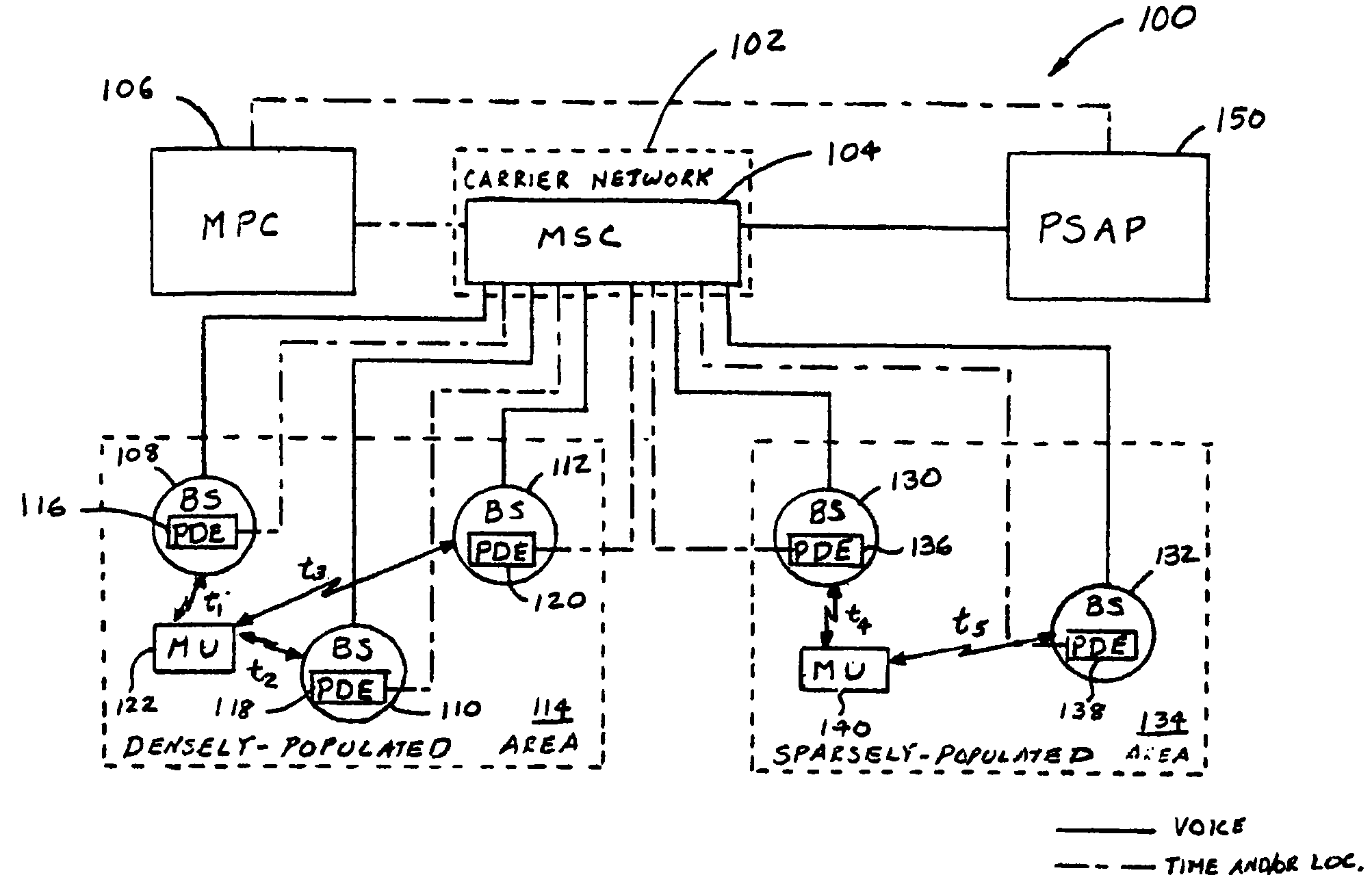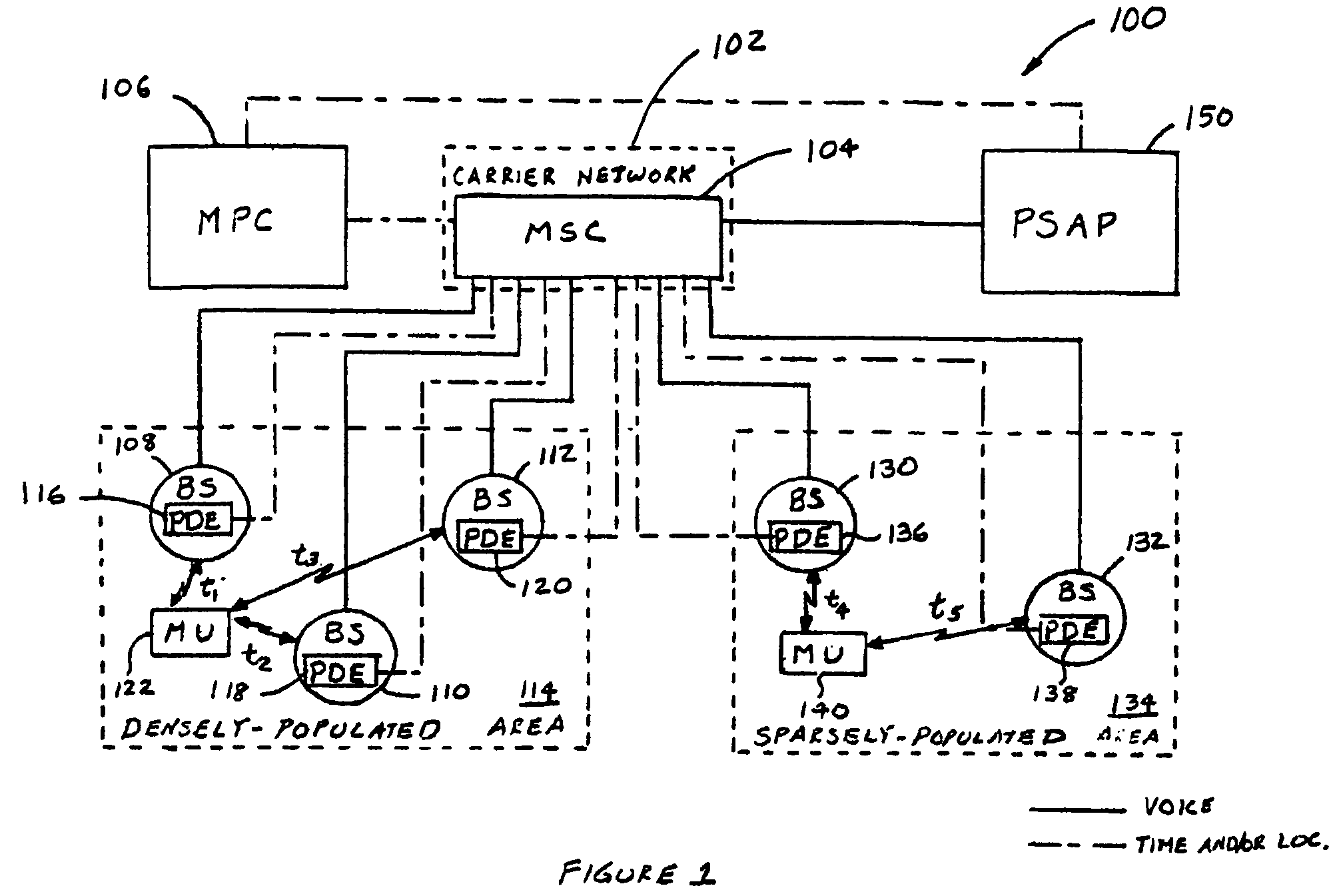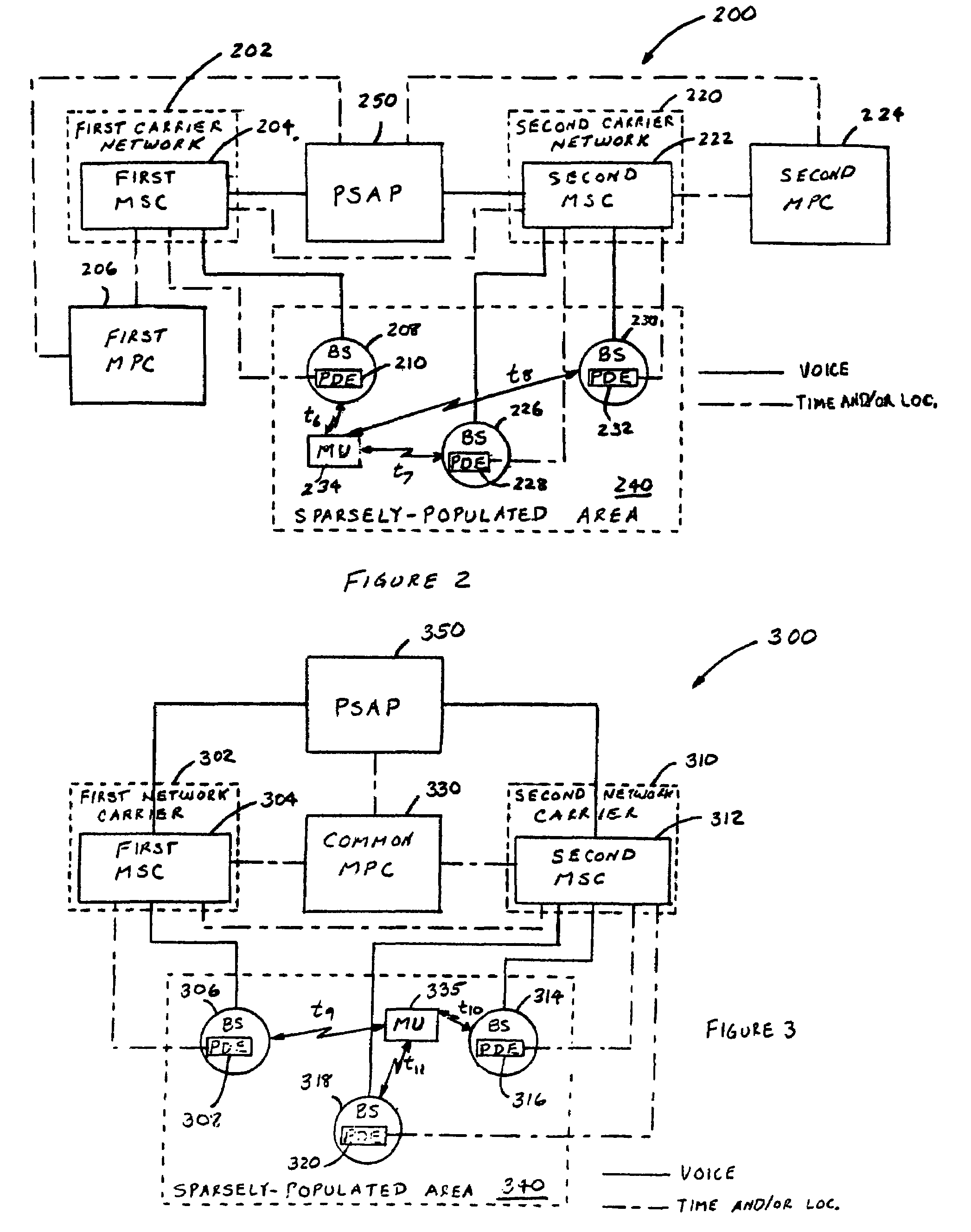System and method for determining a location of an emergency call in a sparsely-populated area
a technology of sparsely populated areas and system and methods, applied in emergency connection handling, connection management, instruments, etc., can solve the problems of inability of gps receiver a relatively long time-consuming and laborious process, and inability to determine the location of the caller, etc., to achieve effective triangulation
- Summary
- Abstract
- Description
- Claims
- Application Information
AI Technical Summary
Benefits of technology
Problems solved by technology
Method used
Image
Examples
Embodiment Construction
[0034]FIG. 2 illustrates a block diagram of an exemplary wireless communication system 200 in accordance with an embodiment of the invention. In summary, the wireless communication system 200 is characterized in the sharing of PDE resources by two or more different wireless communication carriers in order to provide effective triangulation for locating emergency-calling mobile units (MUs) in a sparsely-populated area. In this example, the triangulation technique used to illustrate this embodiment of the invention is Time Difference of Arrival (TDOA), wherein base site equipment record the time of arrival of the signal received from emergency-calling MUs. It shall be understood that the invention also applies to Angle of Arrival (AOA), Enhanced Observed Time Difference (E-OTD), and other triangulation techniques.
[0035]In particular, the wireless communication system 200 comprises a first carrier network 202 including a first mobile switching center (SC) 204 and possibly other network...
PUM
 Login to View More
Login to View More Abstract
Description
Claims
Application Information
 Login to View More
Login to View More - R&D
- Intellectual Property
- Life Sciences
- Materials
- Tech Scout
- Unparalleled Data Quality
- Higher Quality Content
- 60% Fewer Hallucinations
Browse by: Latest US Patents, China's latest patents, Technical Efficacy Thesaurus, Application Domain, Technology Topic, Popular Technical Reports.
© 2025 PatSnap. All rights reserved.Legal|Privacy policy|Modern Slavery Act Transparency Statement|Sitemap|About US| Contact US: help@patsnap.com



